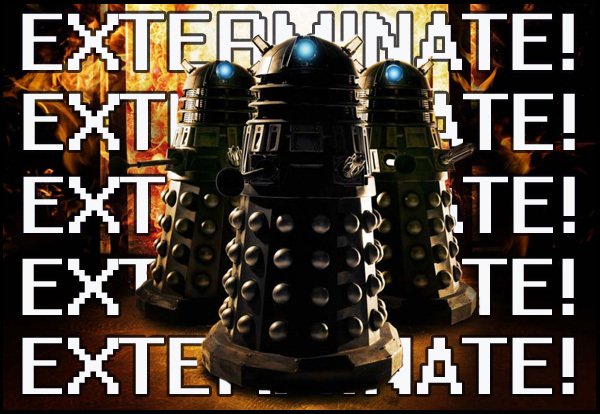After spending many years on traditional BBCode fora, I've been spending a considerable amount of time over the past several years on Reddit, and it differs from those BBCode fora in several ways, and so I thought it might be interest to observe some of them, and think of how they shape the communities and discourse.
Let's start with the basics - like most such communities, content is provided by users, but aside from starting submissions in the form of an "opening post", there can also be link submissions, which are "Look at this neat site/article/image" as Digg used to do. The other thing that people notice about reddit is what powers it - an upvote system, essentially users get to vote "thumbs up" or "thumbs down" for anything they see, from submissions to comments, and that controls what others see.

Image source.
A few years back, when I first implemented "share" buttons on this blog, I submitted a piece or two to reddit using them. Except I submitted it to what had been the default - the main page grouping all the many thousands of submissions per hour, and it had been instantly drowned. For that purpose reddit is sectioned off into smaller sub-forums, called "Sub-reddits", which are controlled by volunteer moderators, and the community of each one. Subreddits exist because to open the pipe that is the internet and to try and drink directly is likely to get you dead, but it's not only to protect the users, and direct them to information they care for, but to allow content a chance to actually be seen by those who would seek it out.
Nested Discussions:
Reddit uses nested discussion, which means unlike BBCode fora they look somewhere closer to the comment section on this blog, but with many more layers - you reply directly to someone, and they reply to you, and that discussion goes off regardless of other discussions under the same thread, about different topics, or between different participants. You might even be lulled to think you're having a dialogue with one person, but aside from others' ability to jump into the discussion at any point, there's the silent peanut-gallery treatment of evaluating and judging both sides in a discussion, handing out upvotes and downvotes as they see fit.
The upsides of nested discussion are that they are easy to see, you get to focus on a dialogue with someone, get to the finer points, and hopefully reach an accord or iron things out. It also enables those who wish to have a discussion about a topic exist under the same roof as those who wish to reply to one another with image macros and gifs. The downsides are the corollaries to the upsides, which isn't all that surprising. When people point out finer and finer points, they often tend to argue over and for points, but that is nothing new for BBCodes, and isn't really required for nested comments either.
The other downside to nested comments and why we didn't enable them in a company I worked at which dealt with creating online environments for schools, is that it enables people to not read what they are not interested in, or makes it much easier to miss an important notice. Let's say I reply to a certain comment, providing missing information, but then another comment rises up missing the same details - people who tend to read the top comments only, and considering how many there might be they are the majority will very likely miss my comment below. This requires me to repeat my comment numerous times, but also has the side-effect that some people literally shout their opinions over and over, because they feel unheard otherwise.
This also makes it easier to ignore or pass by opinions that you don't like reading, or which counter your point. You go into your little sub-thread, talk with people whose opinions you value, and simply ignore everything else people say. The thread might be called "Gaming Now and Then" but you will only read posts about now and 10 years ago, ignoring everything happening 20 years ago, as a super random example. In a BBCode forum, you're much more likely to have to read or acknowledge the opinions of people you disagree with, even if they're holding a concurrent discussion with other people, simply because their comments are right there.
A Collection of Incidental Fiefdoms:

Reddit has millions of users, with the larger subreddits having anywhere between a hundred thousand subscribers to over 5 million subscribers. We're not all interested in the same thing, and if I go to reddit to find the latest news on Apple's iOs, then I am probably not interested in seeing funny cat macros describing the latest events in The Game of Thrones series by HBO. To that effect, reddit is sub-divided into sub-reddits, each essentially its own forum, with its own rules and "opt-in" participants, who understand that topic protection is a thing. That topic could be a location, a group of people, a medium, a work of art, a celebrity, or even a way to discuss things, or drama in other subreddits.
Incidental Communities rule the day in Reddit (see this piece on Incidental versus Personal communities), and that is certainly the case for larger sub-reddits. I used to moderate /r/anime, a community with 170,000 subscribers. Over the month of May 2014, our subreddit had serviced 750,000 unique visitors. Most of these people don't care who I or any of the other participants are, they don't talk to us, or one another, more than once in a blue moon. They come to /r/anime to obtain anime-related news and discussions, and could hardly care less about anything else. Oh, they do, but that's why they opt in to other subreddits.
Subreddits in this sense are akin to RSS subscriptions. You subscribe to a certain site for giving you news on local politics, and another on the stock exchange, and if you wanted to tune into a site about the latest basketball news, you could, but getting said news from a site you're expecting something else from is not a cause for joy.
What those figures above also point out to you is that a subreddit has a core subscriber clause, but its readership is much larger than that. There are many users who will flit in randomly, or through a link, and then flit back out. They no longer don't care for your community, they do not care if they set up inflammatory comments and discussions and then move on. Some users make accounts to do just that. That makes forming a Personal Community hard, when you take into account the sheer number of people, the transient nature of many of them, the way in which they care for an Incidental Community, and trolls.
That's why subreddits have moderators, who for all intents and purposes can do as they please with their subreddit so longer they do not break reddit's few rules, which includes receiving compensation for their position. Moderators are volunteers who are there to protect the subreddit and enforce their rules. They are an integral part of keeping a community focused on what they think it should be. Moderators don't have many tools at their disposals, and most of them have to do with removing content they think is unfitting, so that's how they get to shape a community's direction.
You want a topic about A Game of Thrones, but then people begin bringing up George R.R. Martin's Tuff Voyaging? They have to decide whether it actually belongs or not, and act accordingly. There's always a push for "related" material, which not everyone will find belongs, and if a community is either too lax or not lax enough, people will start complementary or competing subreddits, respectively, to answer their needs. The community submits material, and votes on it, but the moderators make sure that the community is about what it says on the cover.
Downvotes! Downvotes For Everyone!
Submissions:

What truly drives reddit is its upvote and downvote system. A new story gets submitted, and it appears on the "New Queue", where all new submissions appear. For a subreddit such as /r/anime, which is the 130th largest subreddit in terms of subscriber count, a full page of the new queue, made of 25 entries, reflects the last 4-8 hours of submissions, depending on the time of day. For r/leagueoflegends, the 40th or so largest subreddit with 490,000 subscribers, that page reflects roughly 25 minutes' worth of submissions.
Naturally, most of these entries never make it to the front page of the subreddit, which contains the 25 "hottest" stories, and much of it won't even hit the second page. Let alone the "Front Page" of reddit, containing the 25 hottest stories from all of reddit. What makes it to the front page is determined by people who browse the "new queue" or scroll down beyond the front page or two, and upvote or downvote based on what they find interesting, good, agreeable, or any of these things.
Content from known sources, be they sites or "power users" is more likely to make it through, as are submissions that are easy to consume quickly - image posts, tweets, or short and snappy. Longer submissions require more involvement from members, so they tend to get upvoted (but often also downvoted) less. What draws attention to itself and doesn't draw the users' ire is quick to shoot up, while what takes more involvement, isn't. That is to say that what draws attention is likely to get more attention, and what doesn't draw attention is likely to get buried.
Most BBCode fora organize submission based on activity, meaning the thread that was active the latest will be at the top, so if your front page queue can house 7 hours' worth of content, then each thread has 7 hours to garner at least more reply to begin another cycle at the top. This usually promises most threads some time where people get to see them, and keeps them up so long people are interested. On reddit, you have to actively navigate to the new queue, so the front page is material that is considered to already be of interest to most users, and much of the rest of the content is for all intents and purposes "dead", except for users who browse new, who are the vast minority, often deemed "The Knights of New" (a call to "The Knights of Ni" from Monty Python and The Holy Grail) for doing everyone else a service.
An upside to this is that content that asks questions or isn't of interest to most users will get answered and away from others' eyes, but the downside is content can be easily missed, especially if it takes more involvement and attention. More than that, should a submission garner enough of a negative score (more downvotes than upvotes), then it's literally hidden, where most users can't even see it had ever existed. That's -5 for submissions by default (which can be changed).
Discussions:
Once you're within a thread, things are a tad different, but also the same. The comments at the top are the ones that are the "hottest", usually containing of a single line and/or image, and beneath them the ones deemed to be "less hot". Replies to each comment follow the same logic. And of course, when you enter a thread, it's organized by how hot comments are, meaning what's at the top is likely to stay there, and you need considerably more dedication from thread-readers for them to even see comments lower down the totem-pole. Not a proverbial totem-pole, but a nearly literal one.
A choice I find particularly interesting is just how powerful downvote are. You can choose to organize threads by "Total Score", but the default is called "Best", where a comment with 30 upvotes and 3 downvotes is likely to appear lower than a comment with 10 upvotes and 0 downvotes. This I assume was done in part to let comments "rise up" through the ranks, but also fight upvote bots, so users sometimes turn to downvote-bots instead, which are much more effective, as even just a few people not liking a comment can far outweigh the many who did like it. Either system has upsides and downsides, or rather - upvotes and downvotes.
We spoke before of how the nested discussion format allows one to simply look past comments that aren't of interest to them. Reddit has an article called "Redditquete", which details how people should behave on reddit, and treat its features. It contains the following lines:
Vote. If you think something contributes to conversation, upvote it. If you think it does not contribute to the subreddit it is posted in or is off-topic in a particular community, downvote it. Downvote an otherwise acceptable post because you don't personally like it.Reddit tells you to vote based on how much a submission contributes to discussion, but in my experience, on most subreddits, upvotes and downvotes are for "Agree/disagree" for opinions and "like/dislike", for macros and memes. That means not only do people not have to engage with opinions they disagree or don't like, they can quite literally bury them out of sight. Should a comment receive sufficient downvotes, you'll even have to click on a button to let you see it at all, often at the bottom of the thread.
Reddit's nested discussion is supposedly a good way for people with differing opinions to have a semi-personal discussion, but what it also means is that people can not only avoid looking at comments they don't care for, they can hide them away. A surge of people against a specific opinion, or people with an axe to grind can hide all opinions supporting a specific stance, or by a certain person, making reddit a place where an echo-chamber often forms.
Assume you're on a subreddit devoted to discussing a certain anime series, or a series such as Game of Thrones. Suppose you watch a show, but don't like it, or don't like a specific episode, or even a 5-minute segment within a show. If you "dare" voice said opinion on that subreddit or in the discussion for said episode, it's quite likely that your comment, and all those agreeing with yours, would be hidden out of sight, until only an unblemished surface of love remains. Or on the contrary, if enough people didn't like it as well as you, it might be nearly impossible to have a discussion voicing that you did like it, for it'll be hidden out of sight, where the majority of users will never find it.
Downvotes don't make you more predisposed to continue contributing, because when what you write gets "attacked", you feel attacked, so you spend less effort on future content, and dish out the same treatment onto others. You see what others get upvoted for, and you do the same. The "karma" doesn't really "matter", but it's a trained reflex, we go for these imaginary benny points, which can be seen by others, and we go for them hard. More than that, even if karma is "meaningless" for a user in the long run, karma controls what is seen, and what is hidden. Yes, you should vote based on what you think others should see, or what doesn't add to the discussion, because voting shapes where the attention goes.
Controlling Attention and Making it Personal:
Reddit's UI reminds me of the UI changes Facebook and Twitter keep undergoing. You get to see your link karma (your total upvotes minus total downvotes for link submissions you've made), and whether you have new notifications at the top right corner. That link submissions karma is counted but self-text submissions isn't showcases Reddit's Digg-like origins, as a place to collect news from other sites and then discuss those, rather than a place created to facilitate discussion of original material submitted on reddit itself.
To power-up Reddit, many users after a time come across the very useful plugin RES - Reddit Enhancement Suite, and if you use any browser other than Internet Explorer or mobile browsers, I suggest you install it now, if you plan to use reddit. It adds up your current "Comment Karma" at the UI-line, which is usually only something you can see on your userpage. Moderators have use a RES-like plugin called "Toolbox" that creates an additional UI-line with the number of unmoderated submissions, reported content, and moderator-mail for their sub-reddits.
These things take your attention, creating open-loops. The moment something changes, they call on you to check what. You gained or lost karma? The Pavlovian response is to check what users responded well to, and what they responded badly to, and then change your behaviour accordingly. It saps your attention. We all have a limited amount of it to give, but RES makes sure we see even more stuff when it changes, more notifications, more changes, more people calling on us.
RES, aside from making Reddit easier to use in the shape of opening images or videos without navigating off of Reddit also enables you to transform The Big Scary Reddit Incidental Community into a Personal Community. Next to each name it displays your personal upvote/downvote balance for them, and you can even add a personalized tag such as "Big Hornets fan" or "Lives in London" or "Snarky troll." You may not remember their names, but seeing you gave someone a total of +5 or -5 upvotes will have you reacting to their future messages differently, pay more attention even when they converse with others, and even a step into remembering their names - all of which will make Reddit become a more Personal Community for you, provided you spend enough time on a particular one, with its crowd of regulars and semi-regulars.
Semi-Summary:
I call it a "Semi-Summary" because this piece isn't really about giving you actionable tools, but exploring what is there. Reddit is a collection of Incidental Communities, it not only will not work any other way should a community "Succeed" by becoming large, but you can opt-in to any number of subreddits as to suit your needs, meaning no single subreddit should attempt to fulfill all of them, as it won't meet others' needs and desires.
Reddit's system makes it easy to not encounter opinions that you disagree with, and makes it easier to shut away minority opinions. It gives the impression that it's easier to hold dialogues with one person with whom you disagree, but it's quite likely that dissenting opinions will be artificially made harder to find, and one won't even have to see the comments they disagree with. Less flamewars, but also less exchange of opinions.
Reddit's upvotes and downvotes aren't used in their purported manner but still achieve their desired goal - they are used to shut down opinions one disagrees with rather than comments that don't aid the discussion, and easy to consume messages often rule the day.
RES makes Reddit easier to use, but also by its nature changes the interaction into more Personal, as it reminds you of people you've interacted with in the past, but also increases not just how Reddit shapes attention, but how it demands it of you, as a user. And we only have so much attention to give, which is why Reddit judges things and presents to us what others had deemed the most worthy of attention - often, the things requiring the least of it, or the most agreeable ones.
Next Up: Steemit: Where Decentralized Money Talks?

Check out my latest pieces:
- Three Days' Longing - A poem.
- When Stories Leave Us Behind – Empathy and The Narratives of Adaptations
- Acceptance - A poem.

art and flair courtesy of @PegasusPhysics
© Guy Shalev 2014.
This post has originally been posted on my blog here, and has been reformatted and updated as needed for Steemit. You can verify I am the blog owner by scrolling to the bottom of the right sidebar.
